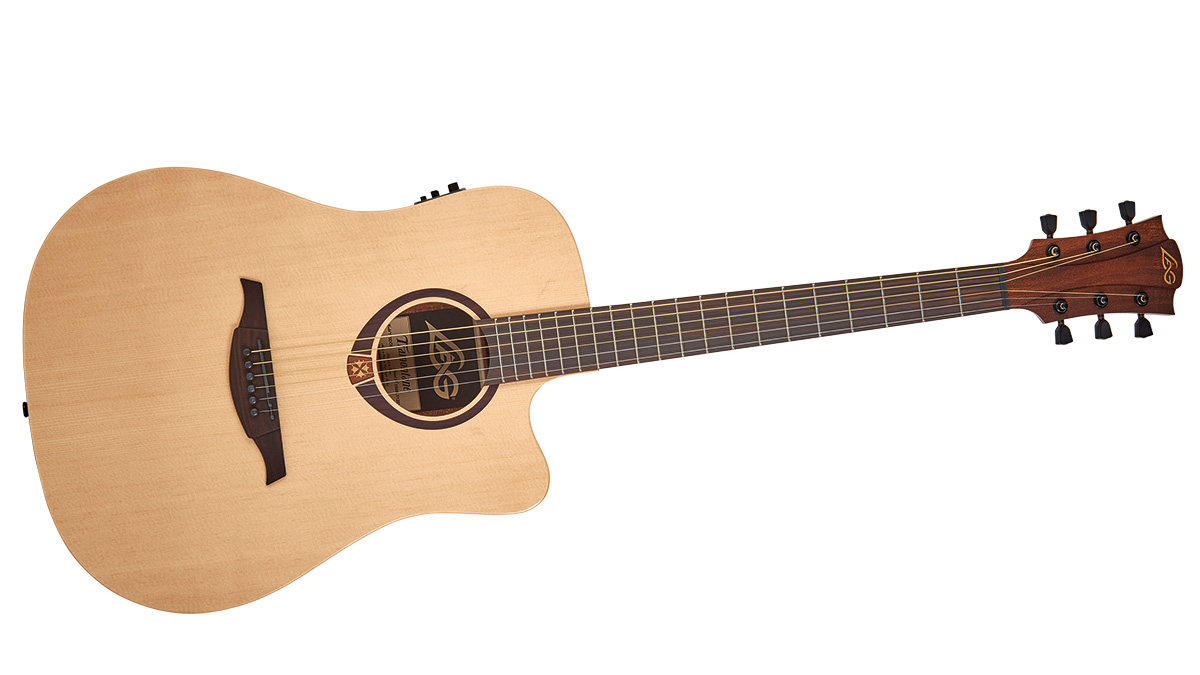MusicRadar Verdict
If the T70DCE seems a little basic, that's not reflected in its performance.
Pros
- +
Great performance for the cash.
Cons
- -
Bare-bones spec.
MusicRadar's got your back
The French know a thing or two about looking good, and it's evident here in this very tidily made budget electro.
Its spec is bare bones with a thin satin 'open pore' finish, no edge binding to the top or back and no fingerboard face dot markers.
But it's very well appointed for the cash. There's that distinct soundhole decoration for starters, and a classy-looking bridge with properly compensated saddle - and that's before we even mention the more-than-decent satin black-plated tuners, graphite nut, and well-spec'd preamp with tuner, three-band EQ and phase switch for feedback rejection.
With a standard 43mm nut, airy 54mm bridge spacing and tidy fretting, the neck is well-shaped, although there's a noticeable sharp edge to the fingerboard, and quite a chunky flat-nosed heel.
It doesn't ruin the fun, though, and with a clear display from the tuner,sounding right is easy,and intonation, for such a budget guitar, is impressive - upper-fret chord shapes sound very 'in'. If those sharp 'board edges and heel edges shout economy, the acoustic sound doesn't, with a strong projection, trim bass and a modern, quite Taylor-esque clarity and precision.
Plugged in with the EQs set flat, the string-to-string output levels are nicely matched - not always the case, certainly at this price - and the modern, textured edge tonality is quite well reproduced.
With a slight mid-cut and by pulling the treble back, we get into an older voicing; more mid reduction and a treble lift get us into that modern piezo-y zing that will show off your tricks and percussive styles nicely.
Want all the hottest music and gear news, reviews, deals, features and more, direct to your inbox? Sign up here.
The phase switch can, at lower levels, alter the bass response subtly or act as the first stage of feedback reduction should you need. Open-mic ready, we'd say.
Dave Burrluck is one of the world’s most experienced guitar journalists, who started writing back in the '80s for International Musician and Recording World, co-founded The Guitar Magazine and has been the Gear Reviews Editor of Guitarist magazine for the past two decades. Along the way, Dave has been the sole author of The PRS Guitar Book and The Player's Guide to Guitar Maintenance as well as contributing to numerous other books on the electric guitar. Dave is an active gigging and recording musician and still finds time to make, repair and mod guitars, not least for Guitarist’s The Mod Squad.

